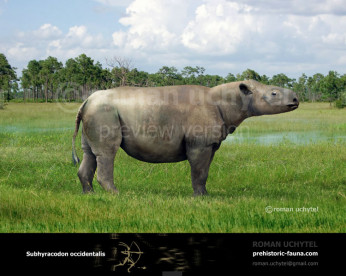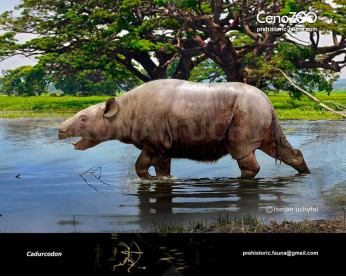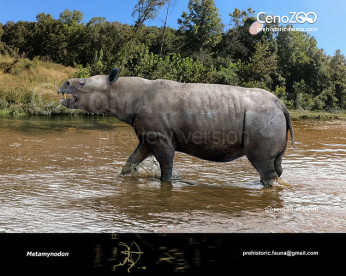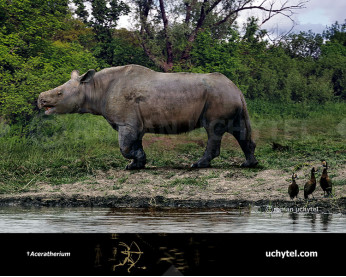Amynodon advenus
202128202128Amynodon advenus (Amynodon (Marsh, 1875))
Order: Perissodactyla
Family: †Amynodontidae
Temporal range: during the Eocene until Oligocene (Eurasia and North America)
Dimensions: length - 2.5 m, weight - 300-600 kg
Amynodon is a genus of ungulate that lived in North America and Eurasia from the Eocene to Oligocene. This rather large animal reached 2.5 meters in length and had a rather massive body. Amynodon had strong legs, but not as short and powerful as the later Metamynodon. The skull was more developed in the antero-ocular region than in the earlier species and the Fangs were smaller than in the later Metamynodon.
Amynodon is the eponymous genus of Amynodontidae, a group of rhinoceroses that have developed significant adaptations to a semi-aquatic lifestyle during their evolution. Amynodon was probably a coastal animal, feeding on the delicate vegetation that grew along rivers and lakes.
Amynodon advenus (Amynodon (Marsh, 1875))
Order: Perissodactyla
Family: †Amynodontidae
Temporal range: during the Eocene until Oligocene (Eurasia and North America)
Dimensions: length - 2.5 m, weight - 300-600 kg
Amynodon is a genus of ungulate that lived in North America and Eurasia from the Eocene to Oligocene. This rather large animal reached 2.5 meters in length and had a rather massive body. Amynodon had strong legs, but not as short and powerful as the later Metamynodon. The skull was more developed in the antero-ocular region than in the earlier species and the Fangs were smaller than in the later Metamynodon.
Amynodon is the eponymous genus of Amynodontidae, a group of rhinoceroses that have developed significant adaptations to a semi-aquatic lifestyle during their evolution. Amynodon was probably a coastal animal, feeding on the delicate vegetation that grew along rivers and lakes.

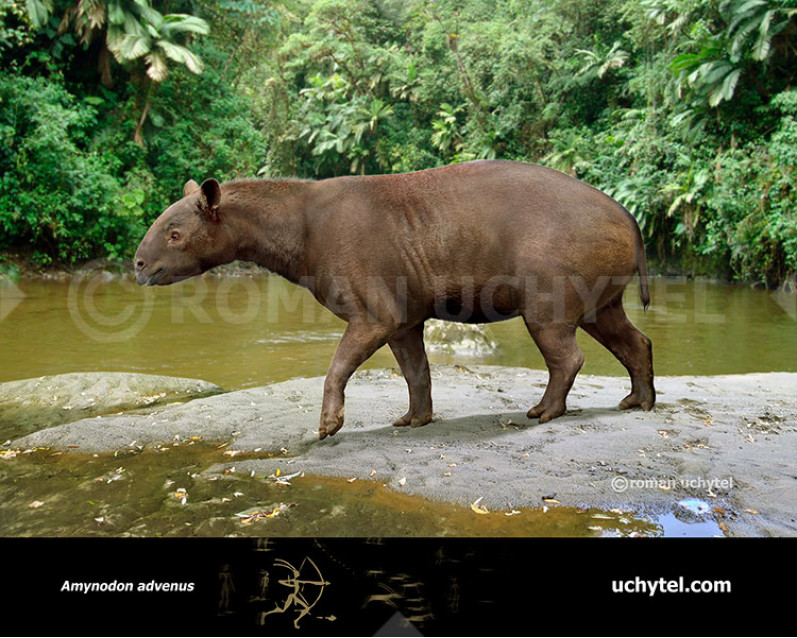
-797x638.jpg)
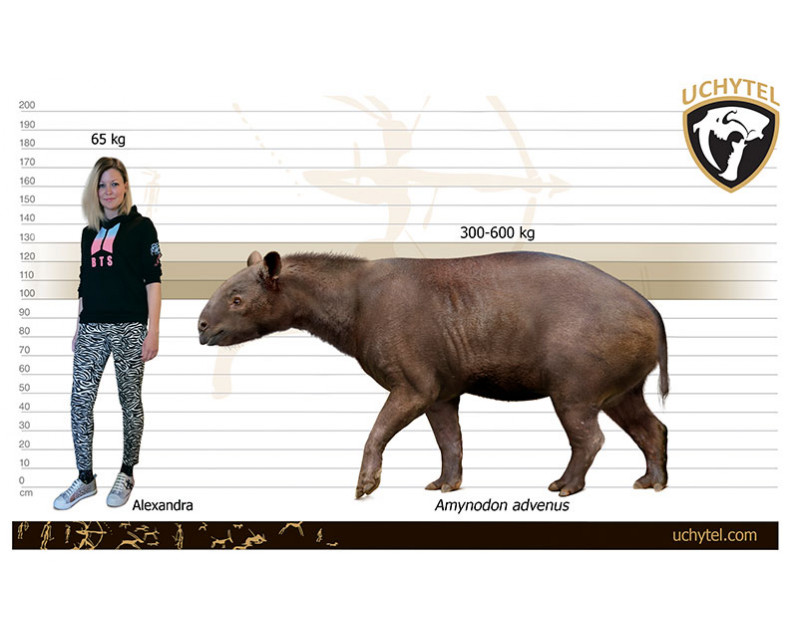

-70x56.jpg)

